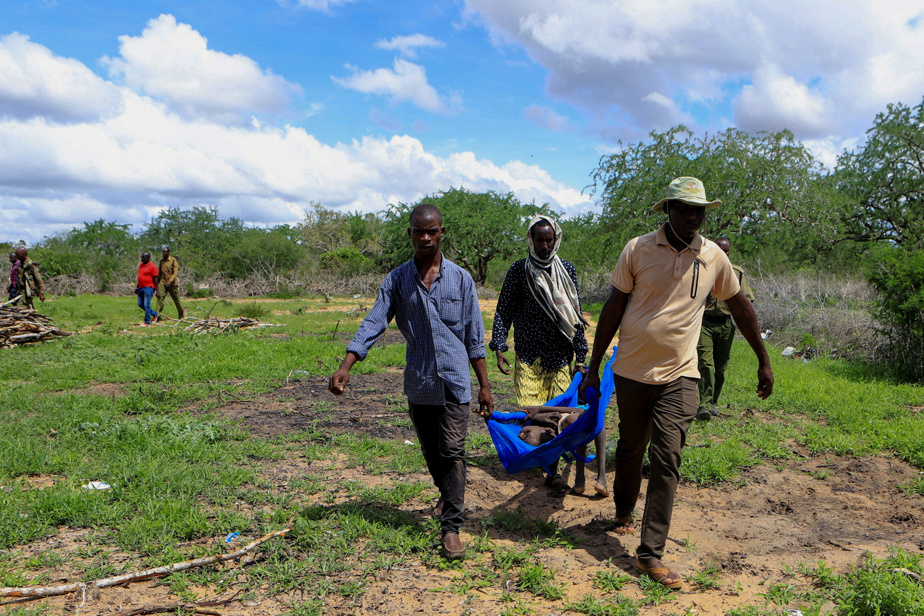(Shakahola) The gruesome tally of cult members who died in Kenya after undergoing an extreme fast to meet God reached 90 on Tuesday, the majority of them children, forcing authorities to suspend searches to unclog morgues.
A new body was exhumed on Tuesday afternoon, an AFP journalist noted, adding to the 16 discovered earlier in the day.
That toll is still tentative, and investigators are expecting the worst in what is now being called the “Shakahola Forest Massacre”, named after the location in southeastern Kenya where the bodies of members of the Shakahola Forest were found. Good News International Church.
“We don’t know how many mass graves, how many bodies we’re going to find,” Interior Minister Kithure Kindiki said on Tuesday.
According to three sources interviewed by AFP, the corpses of children appear in greater numbers.
“The majority of the exhumed bodies are children,” said a medical examiner at the scene, on condition of anonymity. “We exhumed mostly children, then come the women,” confirmed an officer from the Directorate of Criminal Investigations (DCI).
According to Hussein Khalid, executive director of the NGO Haki, which had alerted to the actions of this sect, “50 to 60% (of the bodies) are children, then women and finally men”.
“The horror we have seen over the past four days is traumatic. Nothing prepares you for shallow graves containing children laying head to toe and wrapped in a simple leso (cotton cloth, Editor’s note), he added.
The scale of the “massacre” forced a pause in the search for mass graves.
“We will not dig in the next two days to have time to carry out the autopsies because the morgues are full,” the DCI officer told AFP.
The Malindi hospital administrator told AFP on Tuesday morning that the hospital’s morgue was full.
For several days, investigators have been turning over the red earth of a vast area of ”bush” of 325 hectares where dozens of mass graves could be found.
An investigator told AFP on Monday that up to six people had been buried in the same grave, while other bodies were found on the ground.
Thirty-four people were also found alive, said Mr. Kindiki, stressing the country’s “shock and pain” at this “barbaric act”.
The minister raised the possibility of “terrorism” charges against Paul Mackenzie Nthenge, the self-proclaimed “pastor” of this group called the Good News International Church which advocated fasting to meet God.
“Those who called to fast and die ate and drank, and claimed they were preparing them to meet their Creator,” he blasted.
On Monday, President William Ruto called Paul Mackenzie Nthenge a “terrorist” and promised tough action against those “who want to use religion to advance a shady and unacceptable ideology.”
This case raises many questions about the flaws of the police and judicial authorities, who had known the implicated “pastor” for several years.
Taxi driver in the 1990s before creating his “church”, Paul Mackenzie Nthenge was arrested in 2017, accused of “radicalization” because he advocated not putting children in school, claiming that education does not is not recognized in the Bible.
He was arrested again in March after two children starved to death in the care of their parents, who then buried them. He was released on bail of 100,000 Kenyan shillings (about C$1,000).
He is in custody after turning himself in to police on April 14, when police operations began in the forest. He is due in court on May 2.
This scandal has also revived the debate on the control of cults in Kenya, a predominantly Christian country where “pastors”, “Churches” and other marginal religious movements make the headlines.
Kithure Kindiki said the massacre constitutes “a turning point in the way Kenya deals with serious security threats posed by religious extremists”.

